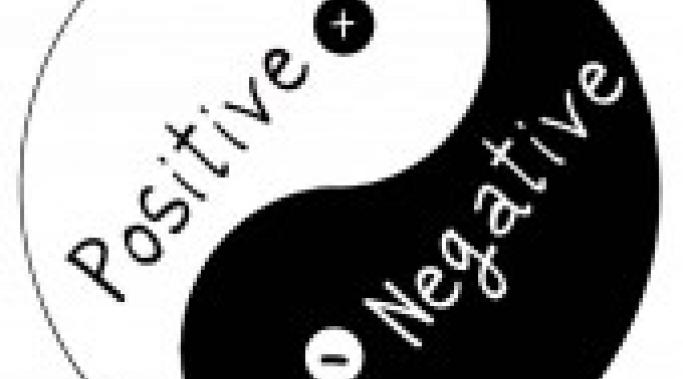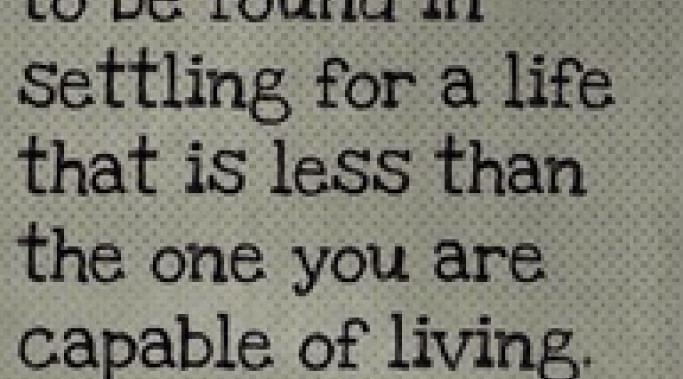Blogs
I can still feel the chilly sea breeze on my face as I sat on a chaise lounge chair by the marsh next to my back yard. Little did I know I was beginning a lifelong coping strategy that would help my ADHD well into adulthood.
As someone struggling with PTSD, you've probably had a nightmare or two that evokes either your direct traumatic experience or the feelings that went along with it.
Why do we have nightmares? What is their purpose? Is it possible to get them to stop?
Two nights ago, I was privileged to attend the National Council’s Awards of Excellence dinner. This is a dinner during which we honor and hear the stories of those who won the awards. I was there because the Bipolar Babe won a Reintegration Award in mentorship, and believe me, no one deserves it more. Being a winner, the Bipolar Babe gets $10,000 for her charity.
But what you might notice about these awards is that they are a partnership between the National Council for Community Behavioral Healthcare (mental and addiction illnesses) and Eli Lilly and Company. Now, The National Council,
. . . advocates for policies that ensure that people who are ill can access comprehensive healthcare services. We also offer state-of-the-science education and practice improvement resources so that services are efficient and effective.
Whereas Eli Lilly is a drug company designed to make money.
But what I learned while I was at the awards is that the Eli Lilly folks had neither horns nor tails.
This topic came to me at a rather ridiculous time---though this is often the case and I am usually somewhere without a pen!---when putting on mascara. Ah, yes. The best ideas plant themselves in my often scattered brain when I am doing anything other than wondering what I might write about.
That being said, with mascara wand in hand, I ran into my office, grabbed a pen, and scribbled it down. And then I thought: "Can we actually view our mental illness positively?" At this moment, as I write these words, I have no idea. But I want to give it a shot. After all, what's the worst that could happen (cue somber music)?
Facing an eating disorder relapse, I’m settling into my first full day of inpatient eating disorder treatment. So in case my beating around the bush in previous posts didn’t make it clear: I’ve relapsed back into my eating disorder. I wish I could say this was uncommon. It’s not – estimates for relapse in the first year after eating disorder treatment are nearly 50%. I’ve been bouncing in and out of treatment for three years now; I have met women who have been doing so for ten years or more.
And while I could go into a long diatribe about how the eating disorder relapse rate might be lower if insurance companies covered treatment earlier in the disorder (oh wait – I’ve already done that), instead I want you to consider something. Maybe a little relapse can be good for your eating disorder recovery.
Are you settling for less in your life? Learn how to build you confidence and self-esteem in order to feel more fulfilled.
What do hospital anxiety, surgery fear and fear of medicine have in common? They are all extremely common things that people get anxious about. In fact, some people become so anxious, these normal fears turn into phobias. Nosocomephobia is the name of the phobia relating to the fear of hospitals. Tomophobia is a fear of surgery or surgical operations. Pharmacophobia is a fear of medicine.
Millions of people have hospital anxiety, fear of surgery, and are afraid to take medicine. Even if the medication is for anxiety, some people claim they are too anxious to take it! (I, too, felt this way when I was anxious.) But what causes these fears and what can you do about them?
There is a relationship between PTSD and OCD, but sometimes the obsessive-compulsive behaviors sneak up on you and so it's not so obvious. Have you noticed, since your trauma, that you have new, idiosyncratic behaviors, even ones that don't make sense? Do you clean (yourself or your home) obsessively? Does everything suddenly have to be perfect?
Following a trauma, it's normal for your behavior to change in response to the new experience you've had. The question is, how do you move past that?
Over the past month, I've been writing about taking care of you, taking care of your child and eating right to help manage your child's mental illness to help parents improve their mental health and wellness. In the video below, you'll find my tips to how getting enough sleep can help you reduce stress and be a better parent.
I've often said that it would be interesting to do a study on psychosis among charismatic Christians or others who emphasize spiritual experiences in daily life. How many would be psychotic? And how do we know the difference between religious experiences and psychosis? How do we know the difference between a heavenly experience and the hell of mental illness? I once read a book that attempted to answer this question by saying that religious experiences are usually visual and pleasant.








